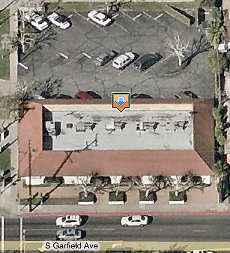 Last week the Office of Foreign Assets Control (“OFAC”) issued a document with the catchy title “Guidance on the Release of Limited Amounts of Blocked Funds for Payment of Legal Fees and Costs Incurred in Challenging the Blocking of U.S. Persons in Administrative or Civil Proceedings.” Although it did not purport to change current policy, it did so in significant and unstated ways.
Last week the Office of Foreign Assets Control (“OFAC”) issued a document with the catchy title “Guidance on the Release of Limited Amounts of Blocked Funds for Payment of Legal Fees and Costs Incurred in Challenging the Blocking of U.S. Persons in Administrative or Civil Proceedings.” Although it did not purport to change current policy, it did so in significant and unstated ways.
Indeed, the guidance document is less than forthright about what it intended to accomplish. The guidance states:
This policy is aimed at enhancing the ability of a Blocked Party that lacks alternative access to funds to acquire legal representation in connection with its designation or the blocking of its property and interests in property.
In fact, the document is designed to prevent and/or burden legal representation in ways that OFAC has not previously sought to do. First, the guidance states that OFAC will only unblock funds to pay legal fees of U.S. Citizens that have been placed on the Specially Designated Nationals (“SDN”) list. Second, the guidance imposes limits on the amounts that will be unblocked with severe limits both on hourly rates and total fees reimbursed.
[T]he payment of legal fees from blocked funds may be licensed at a rate not to exceed $125 per hour, up to a cap set for each stage of the administrative proceedings or litigation. OFAC anticipates tracking the [Equal Access to Justice Act] hourly rate if it changes in the future. The policy incorporates fee caps per proceeding, as does the CJA, and limits the amount of licensable fees to $7,000 per attorney, for up to two attorneys, for administrative proceedings; $7,000 per attorney, for up to two attorneys, for district court litigation; and $5,000 per attorney, for up to two attorneys, for appellate court litigation. In extraordinary cases, such as cases involving lengthy or complex proceedings (e.g., may include cases lasting more than a year or with multiple parties whose designation or blocking resulted from a substantially similar administrative record or set of facts), the maximum fees allowed could be doubled for each stage of the litigation.
It’s probably a safe bet to assume that all the lawyers ran out of the room when they heard these figures. Suffice it to say that few persons challenging their inclusion on the SDN list will be able to find competent representation at these rates.
Prior to the guidelines, OFAC granted licenses to pay attorneys’ fees from blocked funds and assets without these limitations. Unlimited licenses were granted both to Global Relief Foundation and to Benevolence International Foundation.
Admittedly, this was not a uniform policy, and in the case involving the Islamic American Relief Agency, OFAC would only grant a license to pay attorneys’ fees from “fresh funds,” i.e., funds that came from outside the United States and had not been previously blocked. This, of course, is equivalent to licensing blocked funds since these fresh funds would also have become blocked once they entered the United States. And the guidance document leaves open the possibility that it may still permit broader reimbursement for attorneys in future cases from “fresh funds.”
What follows is admittedly rank speculation, but one has to wonder whether OFAC’s crackdown on attorneys in designation cases is the result of the bitter taste left in its mouth in the Al-Haramain case, where OFAC inadvertently disclosed to the attorneys a Top Secret document that revealed the attorneys’ phone calls were being illegally wiretapped by the U.S. government.


 Posted by
Posted by  Category:
Category: 

 The Office of Foreign Assets Control (“OFAC”) today
The Office of Foreign Assets Control (“OFAC”) today  The
The  As previously
As previously  Last week the Office of Foreign Assets Control (“OFAC”) issued a
Last week the Office of Foreign Assets Control (“OFAC”) issued a 

